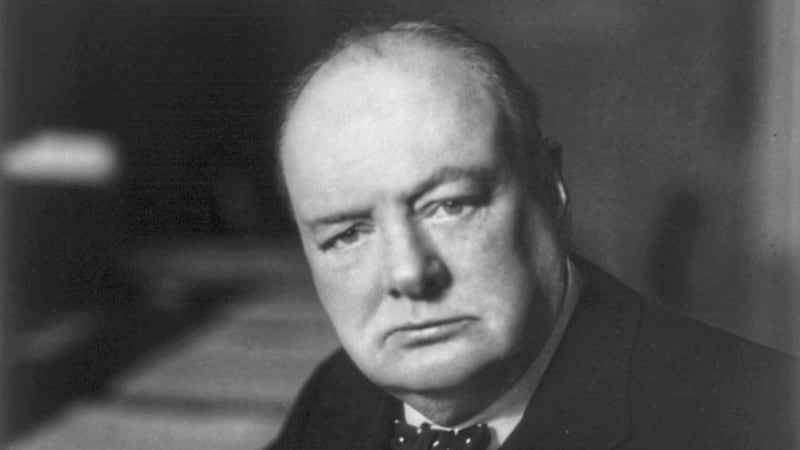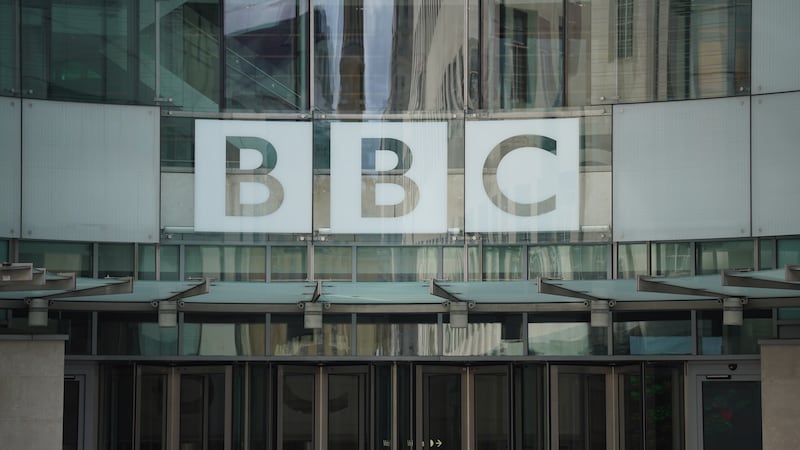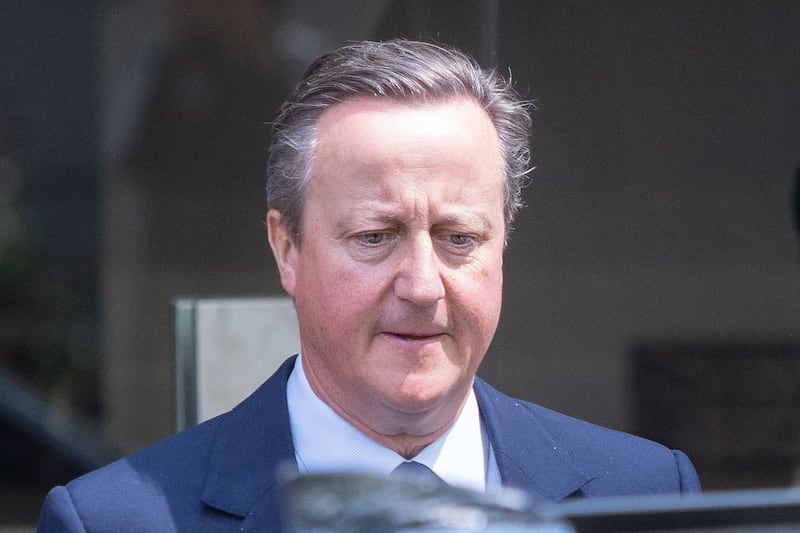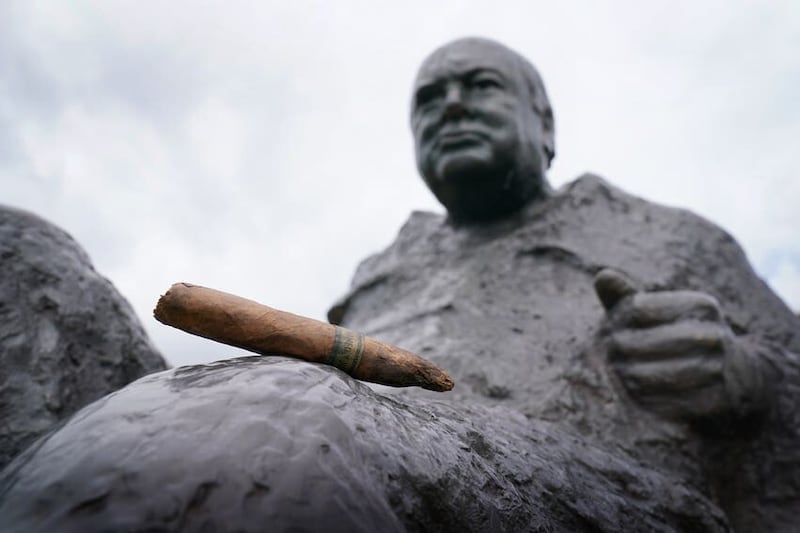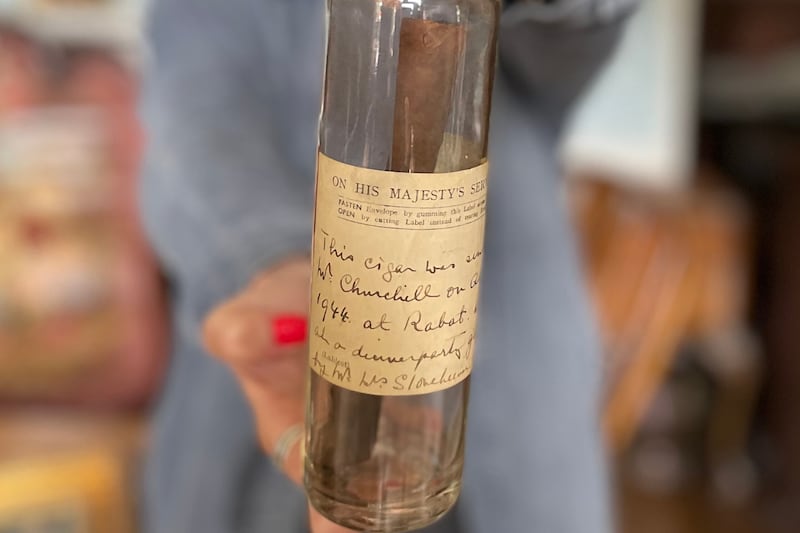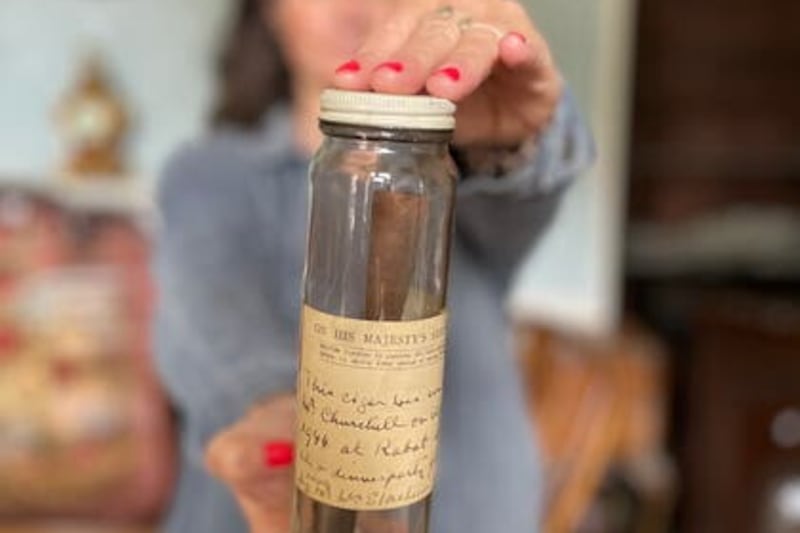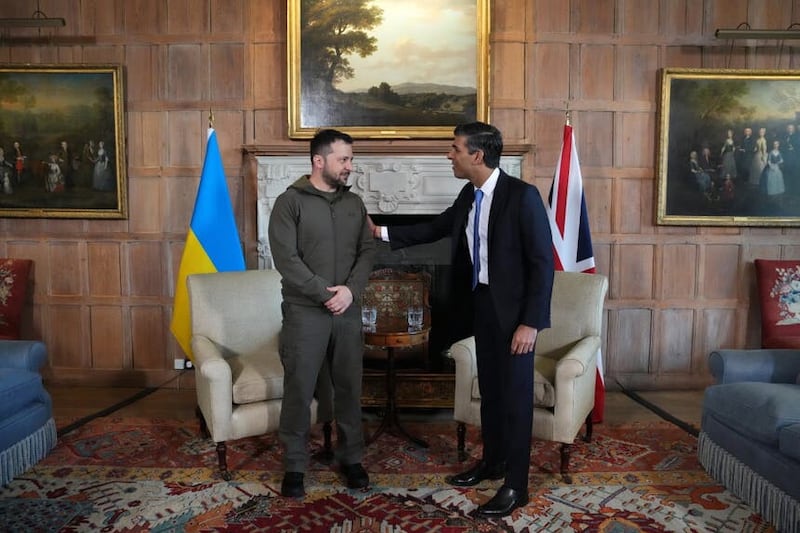EVERY author attempting to write a book on Winston Churchill faces many potential bear traps.
Mention Churchill and Ireland in the same breath and three words spring to mind: 'Black and Tans'. He was likened to Napoleon when it came to his attitude toward Ireland.
This though is reductive history; he may have been ultimately responsible for recruitment of this auxiliary police force, but laying its conduct at his doorstep is too simplistic.
Churchill's relationship with Ireland was far more complexed and nuanced than this. He naively observed: "If Ireland were more prosperous she would be more loyal, and if more loyal more free."
He feared home rule for Ireland the same way he did for India. His imperial mind set was that the Empire was sacrosanct and that granting either independence would spell the end of Britain's global standing.
Churchill also feared that independence for both would lift the lid on historic divisions and spark sectarian violence. Rightly or wrongly he saw British rule as a stabilising influence. Whilst he opposed outright independence he favoured dominion status for both on the grounds they would remain under British authority.
The tide of European history of course derailed Irish independence. The First World War put an unwelcome brake on the Home Rule Act and, perhaps much worse, exacerbated the sectarian divide.
Even before the outbreak of global conflict Churchill was well aware that Ireland faced civil war thanks largely to protestant Ulster opposing Home Rule, if it meant domination by the Catholic south.
Initially Churchill was at pains not to take sides. While First Lord of the Admiralty, he deployed the navy off Carrickfergus to deter the Ulster militia from seizing weapons stored there. This proved a public relations disaster with Churchill being dubbed a 'Lilliput Napoleon'.
Anglo-Irish relations were further fatally damaged by the republican rising in Dublin in 1916.
After the war Prime Minister Lloyd George and Churchill, who had been appointed Secretary of State for War and Air, faced a growing challenge keeping law and order in Ireland.
Unfortunately, the British Army stationed there, which of course included Irish troops, proved ill-disciplined after incidents in Fermoy and Cork. Likewise, the Royal Irish Constabulary could not cope with the escalating sectarian violence.
Now it is important to remember at this time Churchill's key task was overseeing the demobilisation of the British armed forces in the wake of the First World War. He was also busy meddling in the Russian Civil War in the name of holding Bolshevism at bay.
The day to day running of affairs in Ireland was the responsibility of Lord French, the Viceroy, Ian Macpherson the Chief Secretary for Ireland and General Sir Nevil Macready, Commander-in-Chief in Ireland.
To be fair, Macready reported to Field Marshal Sir Henry Wilson, Chief of the imperial General Staff who in turn answered to Churchill. In the words of Wilson, the running of Ireland was to become "a semi-military, semi-police operation".
When the Lord Mayor of Cork, who happened to be the commandant of the Cork Brigade of the IRA, was murdered in 1920 by members of the Royal Irish Constabulary the coroner's inquest ruled wilful murder against Lloyd George, French and Macpherson.
It was Lloyd George who approached General Sir Hugh Tudor to set up a paramilitary force to assist the police and to command both forces. If there is one thing that history accurately teaches us, it is that paramilitaries are never a good idea.
It was not Churchill's, Tudor's or Lloyd George's idea to recruit what became the known as the Black and Tans from ex-servicemen. It was Walter Long, the subsequent First Lord of the Admiralty who suggested this.
On the face of it they seemed a useful manpower pool. In reality men traumatised and desensitised to killing by their time in the trenches and in desperate need of employment did not make the best candidates for policemen.
At the time the concept of 'shell shock' or post-traumatic stress disorder was only just being developed. It soon became apparent that the Black and Tans were poorly funded and worse, ill-disciplined.
To improve the reputation and conduct of the Black and Tans Churchill was responsible for the Auxiliary Division recruited from officers. The Auxies, as they became known, proved no better than their predecessors.
Brigadier General Crozier sent to command them found they too were poorly resourced. Ultimately Tudor's militarisation of the police did not help either. Not only was the constabulary bolstered with brutalised war veterans but also heavily armed.
Churchill knew that the police and the Black and Tans were carrying out reprisal murders, but did not speak out. When martial law was introduced at the end of 1920 it was clear the British government was belatedly acknowledging Ireland was in a state of war. This conflict was against British rule as well as sectarian.
When Brigade-Major (later Field Marshal) Bernard Montgomery arrived he quickly assessed Britain in the long term could not win against the IRA. The only way ahead was partition, which occurred in 1921 with devolved government for both north and south, with them remaining part of the UK.
When Churchill was moved from the War Office to the Colonial Office he still had a say in Irish affairs. He was part of the negotiating team that laid the ground work for the Anglo-Irish Treaty and the creation of the Irish Free State.
However, his only achievement as chair of the defence subcommittee was to secure continued access to a number of Irish ports for the Royal Navy.
Surprisingly, when Churchill met republican Michael Collins the pair got on. When Collins complained about the British bounty on his head, Churchill showed him the Boer 'Wanted dead or alive' poster from his time in South Africa. Churchill had been worth £25 whereas Collins attracted a £10,000 reward. He read the poster, recalled Churchill, "and as he took it in, broke into a hearty laugh. All irritation vanished".
When the Chief Secretary for Ireland post was abolished, Churchill found himself overseeing the transition of power to the new government in Dublin. This involved overseeing the withdrawal of British troops from the south, safeguarding Ulster's Protestants and the implementation of the Special Powers Act in the north.
In the south when Churchill ordered General Macready to drive the IRA from Dublin he refused for fear of what might happen. The job fell to the Irish government, sparking civil war.
Collins knew he had sealed his fate by agreeing to partition and dominion status. Before his death he sent a generous note saying, "Tell Winston we could never have done anything without him."
Nonetheless, Churchill's legacy became the Black and Tans.
Anthony Tucker-Jones is author of Churchill Master and Commander: Winston Churchill at War 1895-1945, published by Osprey Publishing, ospreypublishing.com

